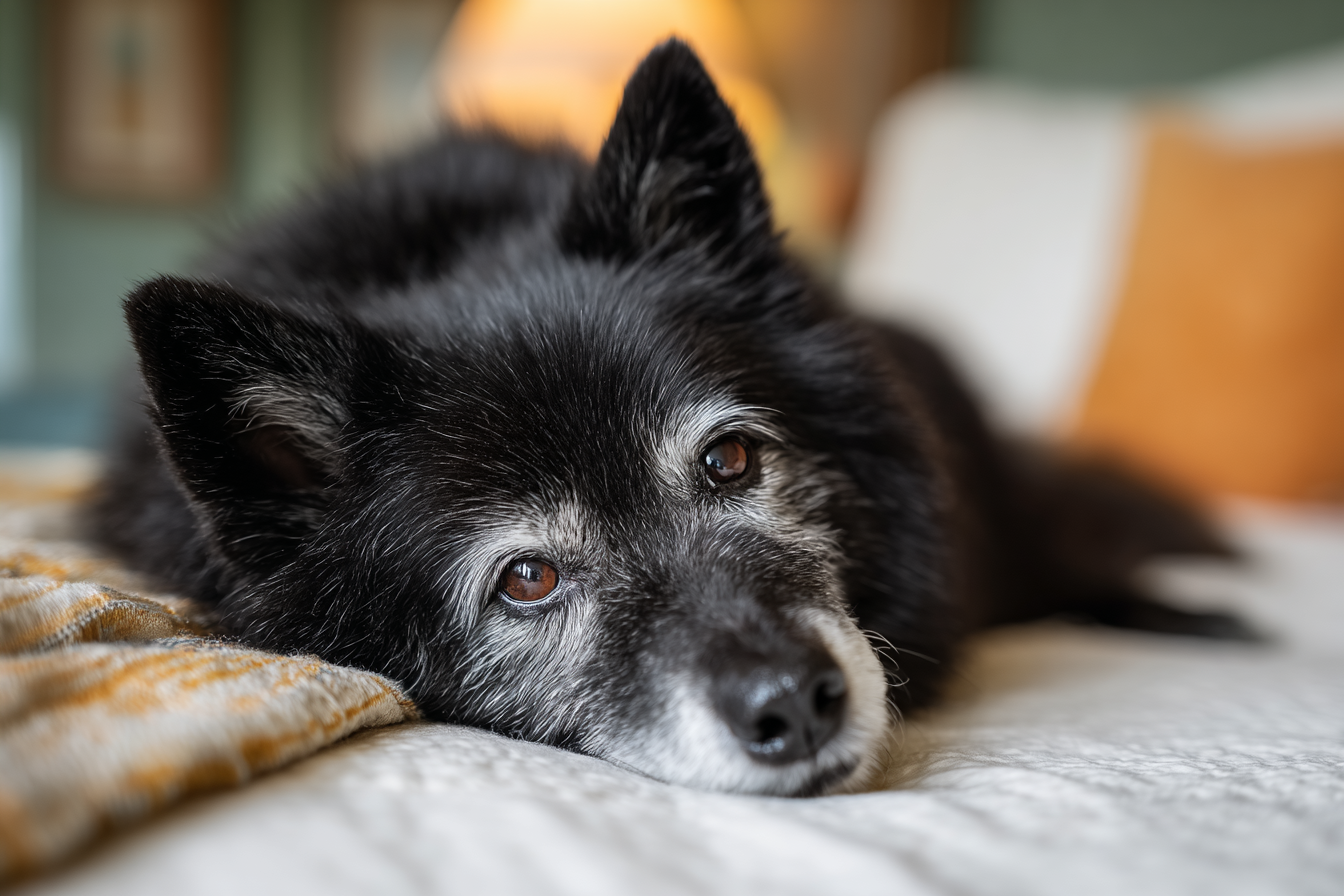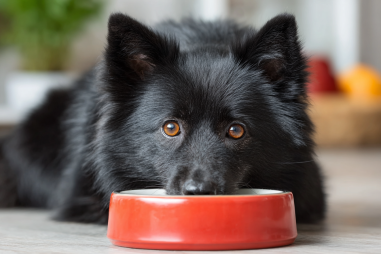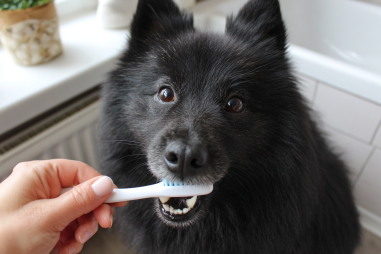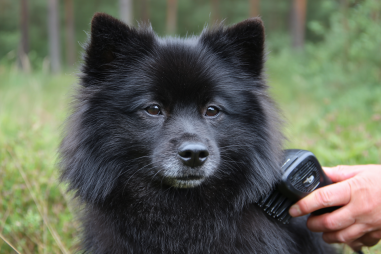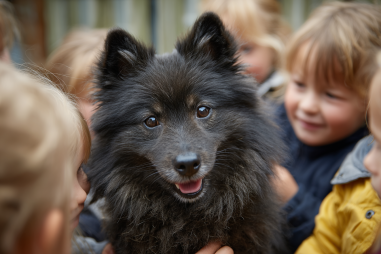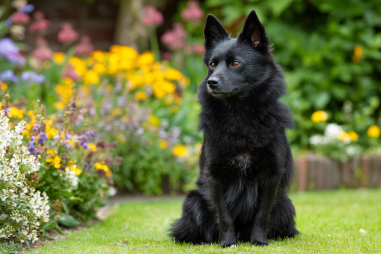As your Schipperke transitions from a lively adult dog into its senior years, you’ll notice changes in its behavior, health, and overall needs. Aging is a natural process, but with attentive care, you can help ensure your furry friend enjoys comfort, happiness, and quality of life well into its golden years. Understanding the signs of aging, adjusting diet and exercise routines, addressing health concerns like arthritis, and providing mental and physical support are key components in senior dog care. Here, we break down essential tips and strategies to help you care for your aging Schipperke with love and dedication.
Signs of Aging in Schipperkes
Recognizing the signs of aging in your Schipperke is the first step to providing appropriate care. Although every dog is unique, many common indicators suggest your little companion is entering its senior years:
- Decreased energy levels: You may notice your dog is less enthusiastic about playtime or walks and prefers longer naps.
- Graying fur: Especially around the muzzle and eyes, the coat might develop a white or grayish tint.
- Reduced mobility: Stiffness, reluctance to jump or climb stairs, and slower movement can hint at joint discomfort or arthritis.
- Changes in appetite or weight: Senior dogs might lose interest in food or, conversely, gain weight due to inactivity.
- Changes in behavior: Increased anxiety, confusion, or decreased responsiveness can be signs of cognitive decline.
- Dental issues: Bad breath, difficulty chewing, or visible tartar buildup may appear as your dog ages.
Observing these signs and communicating with your veterinarian will help tailor a senior care plan suited to your Schipperke’s changing needs.
Adjusting Diet and Exercise
Proper nutrition and exercise become even more important as your Schipperke ages. Senior dogs have different metabolic rates and nutritional requirements, so adjusting their diet is essential to maintaining a healthy weight and overall wellness.
Dietary Adjustments
Consider feeding your senior Schipperke a diet formulated specifically for older dogs. These diets often contain:
- Lower calories to prevent weight gain due to decreased activity
- Higher quality proteins to maintain muscle mass
- Added supplements like omega-3 fatty acids for joint health and coat condition
- Increased fiber for digestive health
If your dog has health issues such as kidney disease or diabetes, your vet might recommend special nutritional plans accordingly. Always introduce new foods gradually and monitor for any digestive upset.
Exercise Routine
While your senior Schipperke may not have the stamina of its younger years, consistent gentle exercise is vital to psychological and physical health. Shorter, more frequent walks can help maintain mobility and manage weight without strain. Activities like indoor play, swimming, or gentle fetch sessions can keep your dog engaged and active. Importantly, avoid overexertion and adjust intensity based on your dog’s comfort level daily.
Managing Arthritis and Pain
Arthritis is a common condition among aging dogs, including Schipperkes. The natural wear and tear of joints can lead to discomfort and limit mobility, but there are ways to manage pain effectively.
Recognizing Arthritis Symptoms
Signs your Schipperke might be experiencing arthritis include stiffness after resting, limping, reluctance to climb stairs or jump, and irritability when touched in certain areas. Early detection improves the chances of effective management.
Treatment Options
Your veterinarian might recommend a combination of treatments such as:
- Non-steroidal anti-inflammatory drugs (NSAIDs): To reduce inflammation and pain.
- Joint supplements: Glucosamine, chondroitin, and omega-3 fatty acids can support joint health.
- Weight management: Maintaining an ideal weight reduces stress on joints.
- Physical therapy: Targeted exercises or hydrotherapy can improve joint function and muscle strength.
It’s important to follow your vet’s guidance carefully and never self-medicate your dog.
Regular Vet Visits and Screenings
Routine veterinary check-ups become even more crucial as your Schipperke ages. Senior dogs benefit from more frequent visits—generally every six months—as early detection of health issues plays a crucial role in management.
- Blood work and urine analysis: These tests can reveal kidney, liver, or thyroid problems and other internal issues that may not be visibly obvious.
- Dental exams: Regular dental care prevents infections and pain that could affect eating and overall health.
- Screenings for heart, vision, and hearing: Aging often affects these senses, and early intervention can improve quality of life.
- Vaccinations and parasite prevention: Keeping immunizations up to date and controlling fleas, ticks, and worms is critical, especially as immunity wanes.
Partnering with your veterinarian ensures your Schipperke receives personalized and proactive healthcare throughout its senior life stage.
Mental Stimulation for Seniors
Just like humans, senior dogs need mental exercise to keep their minds sharp and happy. A lack of stimulation can contribute to cognitive decline and behavioral issues.
You can provide mental enrichment through:
- Puzzle toys that challenge problem-solving skills
- New scents and gentle training sessions to encourage learning
- Interactive games and gentle socialization with other dogs or people
- Regular routine changes to keep things interesting yet not stressful
Providing mental stimulation not only helps maintain cognitive function but also strengthens the bond you share with your Schipperke.
Comfort and Mobility Aids
Enhancing your Schipperke’s environment to support comfort and mobility will greatly improve its quality of life. Consider incorporating:
- Orthopedic dog beds: These provide proper support for aching joints and improve sleep quality.
- Ramps or stairs: Help your dog access higher places like sofas or beds without having to jump.
- Non-slip floor coverings: Rugs or mats avoid slipping, making movement safer on slick floors.
- Doggy diapers or potty pads: Useful if incontinence develops with age.
- Supportive harnesses or slings: Assist your dog during walks or when climbing stairs, especially if mobility is significantly reduced.
Small changes in your home setup can make a big difference in comfort and independence for your senior Schipperke.
Your aging Schipperke deserves compassion, attention, and care tailored to its changing needs. By recognizing aging signs early, modifying diet and exercise routines, managing medical conditions carefully, ensuring mental stimulation, and enhancing comfort with aids, you can help your loyal companion enjoy a fulfilling and loving senior life. Cherish these years together, and your Schipperke will reward you with warmth and companionship beyond measure.

